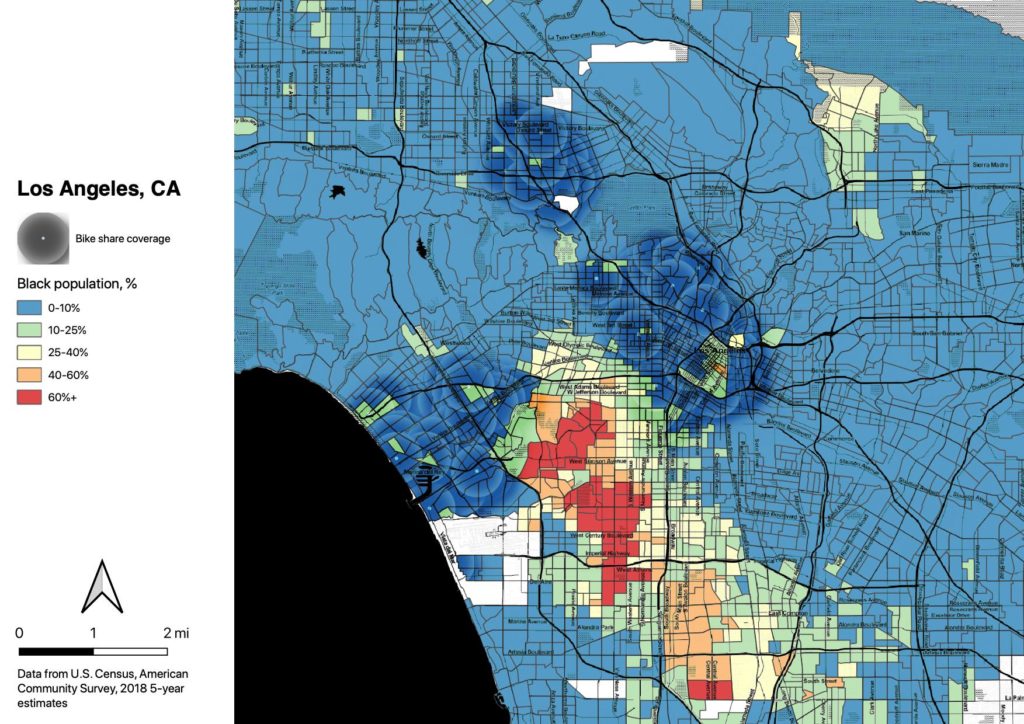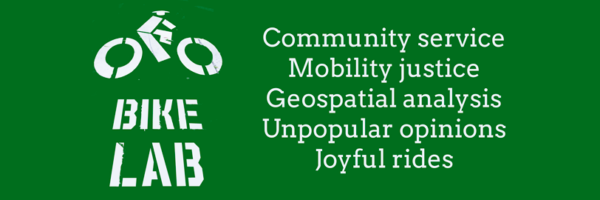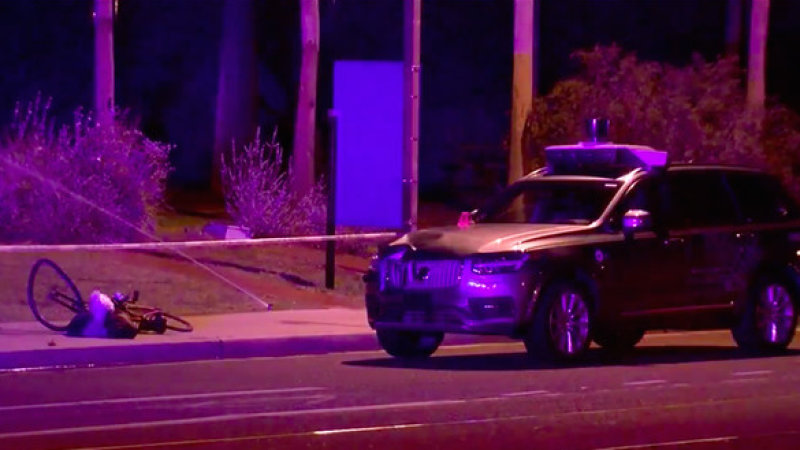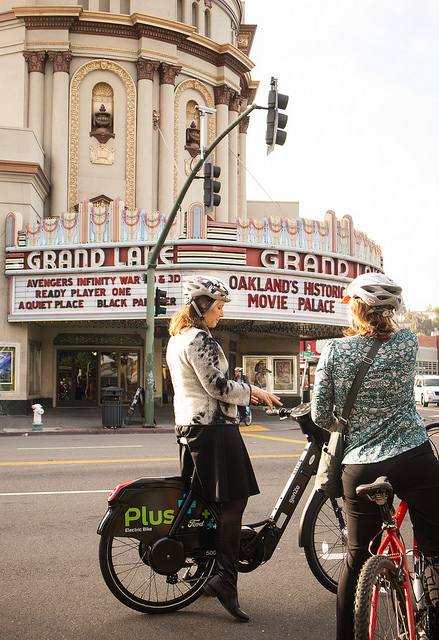One behavior I see a lot from liberal advocates is to assume that the projects that they advocate for will address issues of historical inequities. Part of the work I try to do is to encourage people to grapple with the fact that the systems which created those inequities still exist, and still guide decision-making in our cities. Unless we investigate them and confront those issues directly, changes to urban spatial practice are very likely to reinforce rather than reduce inequities.
A small example of this came up in a thread started by Dr. Destiny Thomas near the beginning of the COVID-19 lockdown. She was encouraging Los Angeles to distribute bikes to mobility-challenged residents. (In Oakland, Bay Area Bike Rescue does an amazing job with this. If you need a bike, go get one.)
The thread included this response from Cathy Tuttle, an urbanist who is on the board of Seattle Neighborhood Greenways:
I found this jarring. First of all, anyone who is working in streets advocacy should be aware of equity criticisms of bike share; Adonia Lugo has been writing about it since at least 2015, and there is plenty of other commentary and analysis in the field. Tuttle here is willing to assume that a claim of equity created and publicized by the vendor is credible, despite the existence of those criticisms.
Without investigating the claim at all, Tuttle is telling Thomas, a transportation planner working with disadvantaged communities, that the equity concerns she is raising can be easily addressed by providing not-very-inexpensive access to the bike share system.
I’ve looked at this in Oakland before, where bike share is basically not available in low-income neighborhoods, so I was prompted to compare the situation in LA. Not surprisingly, the same pattern appears in SoCal.
I should note first that LA Metro’s bike share system, like most for-profit micro-mobility systems, doesn’t collect racial and ethnic data, for three reasons:
- It’s hard to do
- They don’t actually care
- They know that the numbers look bad
So I can’t analyze the actual trips, but I can analyze where the stations are located, and the disparity is glaring enough to make the point obvious:

Residential segregation in the LA Basin is an artifact of historical redlining. In all of the blue census tracts on the above map, the Black population is below 10% of the population; in the red tracts, it’s above 60%. Bike share does not reach the Black areas of the city at all; in fact, there’s not a single bike share station located in a census tract that is even 25% Black (yellow on the map). This disparity is consistent in every U.S. city I’ve looked at; bike share gets located in whiter, more affluent areas, because there’s no money in selling services to poor people. Efforts at equity are made only to the extent they are required to get the program approved.
We should be skeptical and critical of vendor claims. Breaking down historical inequities requires dedicated, intentional work, and if we are complicit in allowing vendors to hand-wave at the problem, we will reinforce the inequities displayed on this map. As LA Metro bike share does.
Instead of assuming that equity claims are credible, we should assume the following:
- Vendor systems will always benefit those with resources over those without
- The city’s only opportunity to force vendors to address equity is before the contract is negotiated
- Power imbalances in negotiations generally benefit the vendor
Given these assumptions, streets advocates who care about equity need to be active and vocal from the outset of the process. And, we must be willing to question whether the city needs a system like this in the first place.
The one power cities have in negotiations is to walk away from the deal. I’m fine with that.


